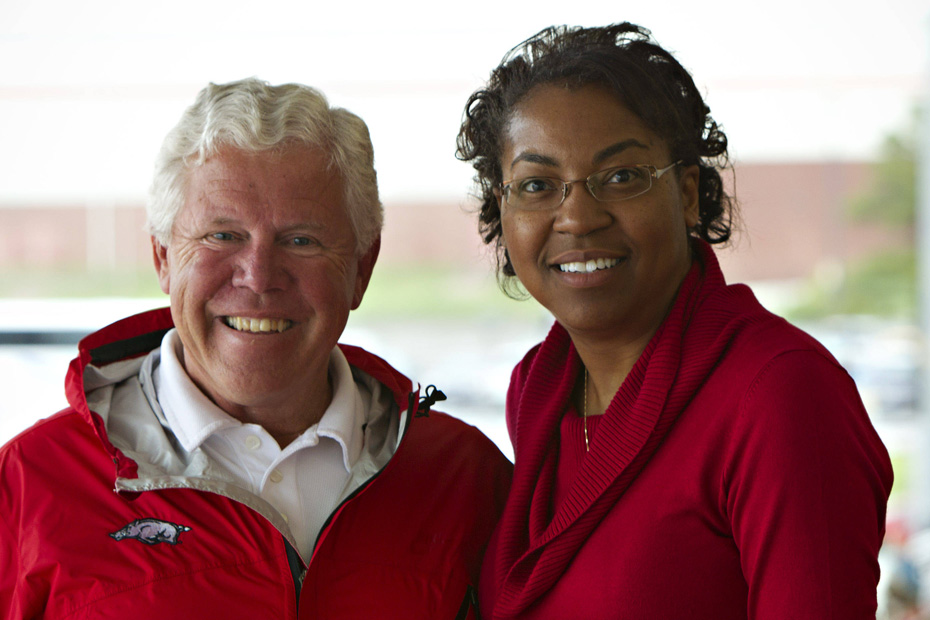
Trailblazers: Linda Bedford-Jackson
(First published in 2011)
“We never set out to be the first African American athletes,” Linda Bedford-Jackson explained from her office at Huston-Tillotson University, “It was a unique and humbling experience.” The past president of the University of Arkansas Black Alumni Society and one of the first African American female track runners visits campus about once a year. Her return for the Trailblazer honor in the spring of 2011 was different. Coming back to campus and seeing the track field, taking in the smell and the air at the track brought back memories for Jackson. “It was very emotional to realize that you are a part of Arkansas history,” Jackson said.
Jackson was one of the first scholarship recipients on the newly formed women’s track and field team. “It was only $250,” Jackson explained, who split half of it with a teammate (she was awarded a full academic scholarship by graduation). It was a blessing for Jackson, she got to do something that she loved. In 1976, women’s track at the University of Arkansas was an NAIA sport, but Title IX brought the team into NCAA competition and gave the team equal resources. Title IX also meant that the women’s track team would be going up against the best in the country. Jackson stepped up to the challenge. She was the school’s record holder in the 60 meters, 100 meters, 200 meters and both relays. The 4×400-meter relay record stood for more than 15 years.
She added to her resume of accomplishments away from the competition stage. As the only African American student in the Journalism program at the time, she’s proud of the academic scholarship she gained. During her senior season, she became the first female sports editor for The Traveler, the University of Arkansas’ student-run newspaper. She assumed the position with the stance of increasing the coverage and visibility of women’s athletics, in turn giving herself and all other female student-athletes on campus their due. She was also a founding member of Zeta Phi Beta Sorority Incorporated and was involved at St. James Church.
On her return to Fayetteville for the Trailblazer recognition, Jackson toured the athletic facilities with her mouth wide open in awe. She is happy to see that student-athletes have what they have today in contrast to what they had in the late 1970s at Pomfret Hall. Additionally, she’s proud to see female student-athletes getting equal opportunities. The most important thing for these student-athletes is education. “It’s important for all student-athletes, even if they go pro,” Jackson said, “to get their degree.”
Jackson was “flattered and humbled,” by the Trailblazer experience. She didn’t know it at the time when she was a student, but she and her teammates set the foundation for excellence in what would become a national powerhouse. “We just gave it our best, the records were just extra.”
In honor of Black History Month, Razorback Athletics is honoring “Trailblazer” stories celebrating the success and accomplishments of some of the first African-American student-athletes in University of Arkansas history.
